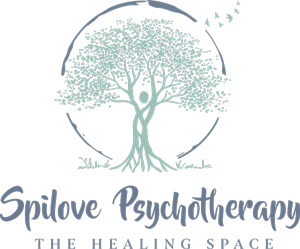The 5 Most Common Communication Mistakes Couples Make—and How to Fix Them
Healthy communication is the cornerstone of any successful relationship. It fosters intimacy, strengthens bonds, and helps navigate challenges. Yet, even the most loving couples sometimes find themselves stuck in frustrating patterns of miscommunication.
The good news?
These mistakes are common and can be fixed.
With awareness and effort, you can build healthier communication habits that transform your relationship.
If you’re in Philadelphia or Bryn Mawr, PA, and seeking guidance on improving communication in your relationship, this blog offers actionable advice. It highlights how couples therapy can support your journey.
1. Assuming Your Partner Can Read Your Mind
The Mistake—It’s easy to assume your partner should just “know” what you need, especially if you’ve been together for a long time. You might think, If they really loved me, they’d understand what I’m feeling without me having to say it. But this often leads to disappointment and resentment.
Why It Happens—Mind-reading is often seen as a sign of emotional closeness. However, no matter how well your partner knows you, they can’t always intuit your needs or feelings.
The Fix
Practice Direct Communication—Clearly express your needs instead of expecting your partner to guess. For example, instead of saying, “You never help me around the house,” try, “I feel overwhelmed with chores. Could you help me with the dishes tonight?”
Encourage Questions—Let your partner know it’s okay to ask for clarification. Open dialogue fosters understanding and connection.
2. Using Blame Instead of “I” Statements
The Mistake—Blame often creeps into conversations during emotional moments. Phrases like, “You never listen to me” or “You always make everything about yourself” put your partner on the defensive, making resolution difficult.
Why It Happens—Blame is often a knee-jerk reaction to frustration or feeling unheard. While it’s an attempt to express pain, it can escalate conflicts instead of resolving them.
The Fix
Use “I” Statements—Frame your feelings without accusing your partner. For instance, say, “I feel hurt when my needs aren’t considered” instead of, “You’re so selfish.”
Own Your Emotions—Recognize your feelings are valid but express them in ways that invite connection.
3. Avoiding Difficult Conversations
The Mistake—Avoiding uncomfortable topics may seem like a way to keep the peace, but it often leads to unresolved tension and emotional distance.
Why It Happens—Conflict can feel threatening, especially if past experiences make it seem overwhelming. Avoidance may seem protective but often backfires.
The Fix
Schedule Time for Hard Talks—Pick a neutral, calm moment to address sensitive topics instead of diving in during heated arguments.
Practice Active Listening—Show your partner you value their perspective by truly listening and paraphrasing their words for clarity.
4. Interrupting or Talking Over Each Other
The Mistake—Interrupting can make your partner feel dismissed or unheard. Even with good intentions, it signals that your perspective is more important than theirs.
Why It Happens—Interruptions often stem from eagerness to respond or clarify misunderstandings.
The Fix
Pause and Reflect—Focus on your partner’s words rather than planning your response. Wait a few seconds after they finish speaking to ensure they’re done.
Set Ground Rules—Agree to avoid interrupting during discussions.
Apologize and Reset—If you catch yourself interrupting, acknowledge it and let your partner continue.
5. Expecting Every Conversation to Lead to Resolution
The Mistake—Believing every disagreement must end with a solution can lead to frustration when that doesn’t happen.
Why It Happens—The desire for resolution is natural, but not every issue can be solved immediately—or ever.
The Fix
Focus on Understanding—Prioritize understanding your partner’s perspective rather than rushing to a solution.
Agree to Disagree—Recognize that some disagreements don’t have a “right” answer.
Allow Time—Give space for ongoing dialogue on complex issues.
How Couples Therapy in Philadelphia, PA Can Help Improve Communication
If you and your partner struggle with these patterns, couples therapy can provide the tools and insights needed to strengthen your connection. At our therapy offices in Philadelphia and Bryn Mawr, PA, we help couples build healthier communication habits and address deeper issues affecting their relationship.
Benefits of Couples Therapy
Creating a Safe Space for Dialogue—Therapy provides a neutral environment where both partners feel heard and understood.
Identifying Underlying Issues—Communication struggles often stem from past traumas, unmet emotional needs, or attachment differences. Couples counseling in Philadelphia helps uncover and address these roots.
Practicing Active Listening—Learn how to truly hear and empathize with your partner’s perspective, even during disagreements.
Breaking Unhealthy Patterns—Discover new ways to communicate without blaming, interrupting, or avoiding tough topics.
Rebuilding Intimacy and Trust—Open and honest communication fosters deeper emotional connections.
Find Support in Philadelphia and Bryn Mawr, PA
At Spilove Psychotherapy, we specialize in helping couples build stronger, healthier relationships. Our therapists in Philadelphia and Bryn Mawr, PA are here to guide you through communication challenges and equip you with tools for lasting connection.
Whether you’re navigating everyday misunderstandings or deeper conflicts, we’re here to help. Contact us today for a free 15-minute consultation and take the first step toward a more fulfilling relationship.
Start Your Journey to Better Communication Today
Communication is a skill that takes time and effort to develop. With awareness, practice, and the right support, you and your partner can create a relationship where both of you feel valued, understood, and deeply connected. Reach out to our Philadelphia or Bryn Mawr, PA offices today to learn how therapy can help you and your partner thrive.
Learn more communication strategies for couples by exploring our blogs.
Discover how our couples therapy can help you build a stronger connection!
Other Therapy Services We Offer in Pennsylvania
In addition to our focus on couples counseling, our skilled therapists offer a variety of other mental health services. These include Ketamine-assisted Psychotherapy, LGBTQIA+ therapy, and treatment for eating disorders. We also provide specialized play therapy for children, EMDR therapy, and trauma intensives.
Our qualified therapists conduct DBT skills groups as well.
If life coaching is more suited to your needs than traditional therapy, we provide in-person life coaching in Pennsylvania and online services across the US.






